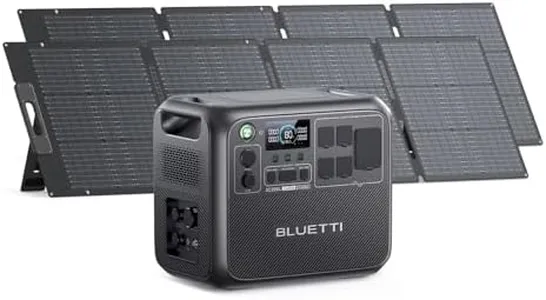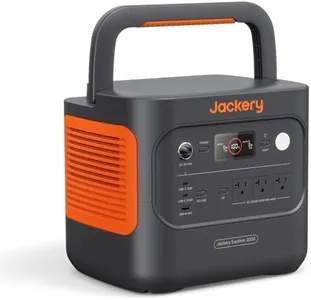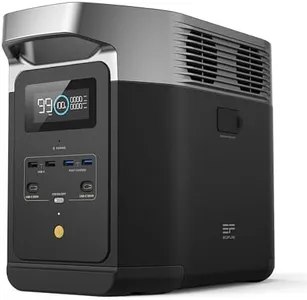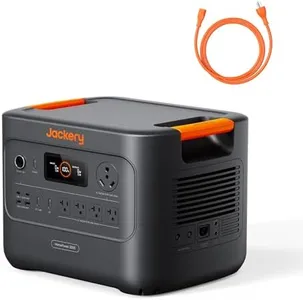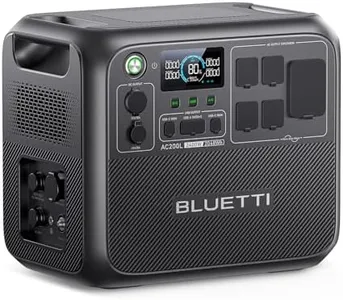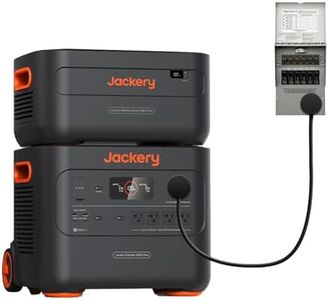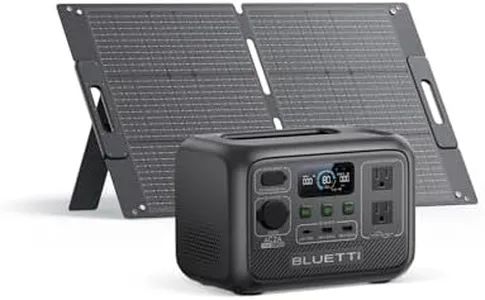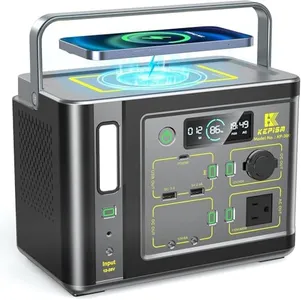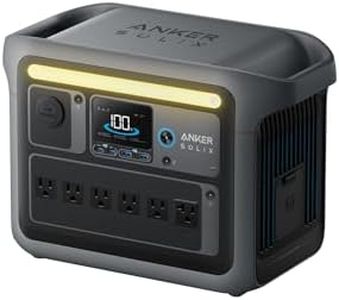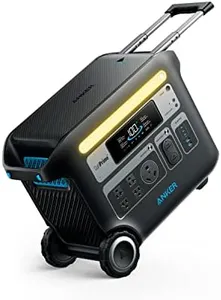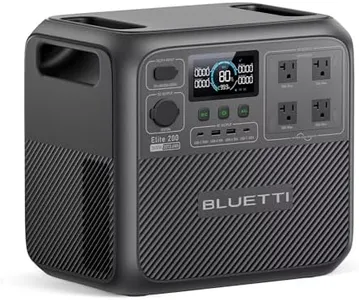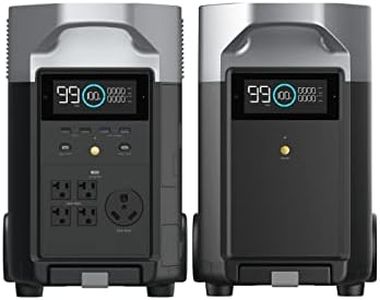10 Best Home Battery Backup Systems 2025 in the United States
Our technology thoroughly searches through the online shopping world, reviewing hundreds of sites. We then process and analyze this information, updating in real-time to bring you the latest top-rated products. This way, you always get the best and most current options available.

Our Top Picks
Winner
Jackery Explorer 2000 v2 Portable Power Station, 2042Wh LiFePO4 Home Backup Battery, 2200W Solar Generator, USB-C PD 100W Fast Charging for Emergencies, Power Outages, Camping(Solar Panel Optional)
Most important from
537 reviews
The Jackery Explorer 2000 v2 is a powerful and compact home battery backup system with a large 2042Wh lithium iron phosphate (LiFePO4) battery. It offers a strong 2200W continuous power output through three AC outlets, which is enough to keep essential home devices running during outages or for outdoor activities like camping. The LiFePO4 battery type is known for safety and longevity, and this unit promises up to 10 years of use, making it a durable investment.
Charging is fast and flexible—you can recharge it from AC power quickly (80% in just over an hour) or use solar panels (sold separately) to top it up in about 6 hours, supporting off-grid situations well. Its compact size and weight (about 40 pounds) make it easier to move around than many similar-capacity backup batteries. The system includes smart features like near-silent operation and seamless power switching within 20 milliseconds to prevent interruptions, which is great for peace of mind during emergencies.
Scalability options are limited since it’s a single integrated unit without the ability to easily add more batteries for extended capacity. While solar panel integration is supported, these panels are not included, so additional investment is required for a full solar setup. Warranty details should be confirmed directly with the manufacturer. This product is an excellent choice for anyone needing a reliable, portable, and long-lasting power backup solution, especially for moderate home use or outdoor needs, although those seeking expandable systems might want to consider other options.
Most important from
537 reviews
EF ECOFLOW Portable Power Station DELTA 2, 1024Wh LiFePO4 (LFP) Battery, 1800W AC/100W USB-C Output, Solar Generator(Solar Panel Optional) for Home Backup Power, Camping & RVs
Most important from
4046 reviews
The EF ECOFLOW Portable Power Station DELTA 2 is a strong choice if you want a reliable home battery backup system that’s also good for camping or RV use. It offers a solid 1024Wh battery capacity with a powerful 1800W output, enough to run most household appliances during outages. The battery uses LiFePO4 (LFP) technology, which lasts much longer than typical lithium-ion batteries—over 3000 cycles—meaning it can serve you for many years without significant capacity loss. Charging speed is impressive, reaching 80% in just 50 minutes when plugged into AC power, helping you get backup power ready quickly. You can also expand the battery capacity up to 3kWh by adding extra units, which is great if you want more energy storage later on.
Solar panel input is supported up to 500W, allowing clean and quiet recharging from the sun, making it a good match for off-grid or green energy setups. The device’s 15 output ports provide flexibility to power various gadgets simultaneously. On the downside, the unit weighs 27 pounds, which might be a bit heavy for frequent carrying despite being portable. While it covers many bases, the maximum 1800W output might not handle very high-power appliances like large air conditioners or well pumps. Also, the solar panels are optional and not included, so that’s an added cost if you want full solar integration.
The 5-year warranty and proven reliability add confidence to the purchase. If you need a versatile, durable, and fairly powerful backup system that can grow with your needs and offers fast charging plus solar support, the DELTA 2 makes for a compelling option.
Most important from
4046 reviews
EF ECOFLOW 120V Home Backup Kit: DELTA Pro 3600Wh Power Station with Transfer Switch Kit, 3600W AC Output, Solar Generator for Home Use, Emergency, RV
Most important from
799 reviews
The EF ECOFLOW DELTA Pro is a powerful home battery backup system with a 3600Wh lithium iron phosphate (LFP) battery, which is known for longer cycle life and improved safety compared to other battery types. Its 3600W continuous power output and peak of 4500W make it strong enough to handle essential home appliances during outages. One standout feature is its scalability: you can expand the battery capacity up to 25kWh by adding extra batteries or smart generators, offering flexibility based on your energy needs.
The system includes a transfer switch kit, simplifying integration with your home's electrical setup. It also supports solar charging, making it a good fit for those wanting to combine backup power with renewable energy. Weighing 99 pounds, it’s portable but still requires some effort to relocate.
This system suits homeowners looking for a reliable, expandable backup that can also serve outdoor or RV needs.
